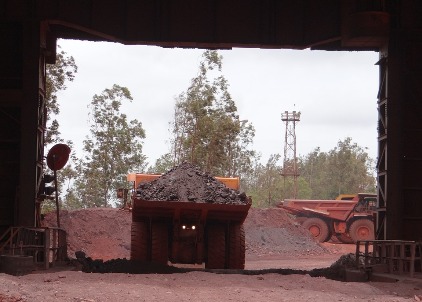MUMBAI: Iron ore mine auctions which are upcoming in Odisha might see muted participation from steel makers worried about high bid expectations, company executives said. The state will auction eight mines with total reserves of 573 million tonnes (mt) later this month, according to reports.
Top steel makers will need additional ore since they are all expanding and buying insolvent assets, said Pankaj Satija, chief of regulatory affairs, Tata Steel, and chairperson, raw materials sub-committee, Indian Steel Association. Tata Steel itself is expanding its Kalinganagar plant in Odisha and needs more ore for Bhushan Steel Ltd that it recently acquired.
Odisha produced around 114mt of ore in 2018-19, more than half of India’s total output. Satija said that the Odisha auctions are going to play a major role in meeting the current and future iron ore requirements for the large steel companies. Going by the past records of auctions for iron ore blocks in India, it has been noticed that the lease is being acquired for a premium of 44.35% and the highest offer in subsequent rounds touching as high as 275%. The average bid price in 2016 for iron ore blocks in India was 86.5%, which increased to 93.6% in 2017 and 100.2% in 2018. In 2019, at the recent auctions of Karnataka and Maharashtra, average bid price comes to 85.92%.
The impending auction of iron ore blocks in Odisha will not be much different and companies will try to ensure raw material security for long-term sustenance. There are also concerns on how quickly the new lessee can start production, he added.
The bid premium is a percentage of the average monthly price of grades of iron ore, published by Indian Bureau of Mines. The mine is awarded to the highest bid premium offer.
According to one of the JSW Steel Ltd official, steel demand has slowed down and the economy is on shaky ground. JSW Steel will not be aggressively participating in the Odisha auctions and it is not willing to pay an excessive premium for the mines, unlike what it did for the Karnataka blocks. It is doubtful whether JSW will cross at 25-30% bid premium threshold. The company recently acquired three mines in Karnataka, with an average bid premium of 78.88%.
A JSW Steel spokesperson declined to comment.
Manish Kharbanda, executive director, Jindal Steel and Power Ltd (JSPL) said that when JSW bids, it only goes up to an extent. JSW makes sure that whatever it takes, it will operate. JSW has 6mtpa (million tonnes per annum) capacity in Angul, which it wants to scale up to 12mtpa. For this, JSW does require captive iron ore. It also has a 9mtpa pellet plant in Odisha and 3mtpa of integrated steel production. JSW will look at 2-3 large mines but it will be pragmatic in their bidding.
Hetal Gandhi, director, Crisil Research said that the mines in Odisha will attract higher bid premiums because of the state’s better quality of ore. Since more than half of India’s crude steel-making capacity is based in the eastern belt, it’s been expected that a significant participation from large steel makers in the region, smaller sponge iron and pellet makers and merchant miners. In the last two years, Bhushan Steel paid a 100% bid premium in Odisha, Bhushan Power and Steel bid at 87% while Essar Steel won offering 44%.
The JSW official who cited earlier said that the capital cost for developing iron ore mines in Odisha is much higher compared to other states due to the imposition of the recommendations by National Environmental Engineering Research Institute (NEERI) which prescribes setting up of slurry pipeline or railway siding or conveyor for mines that produce more than 5 million tonnes. Almost every mine in Odisha has a production capacity of more than 5 mtpa. This calls for not only huge capital investment but also execution risks apart from logistics constraints in Odisha.
Satija of Tata Steel said that Tata Steel is also concerned on how soon the new lessee can start production once the licence is awarded. The current non-captive licences expire in March 2020, but there is no guarantee that the new lessees can start production from April 1st. Production cannot be started unless there are environment and forest clearances. In the past, there have been cases where production couldn’t start for at least four years after the licence was awarded. If this process takes as long this time around, then the quarter of the iron ore supply will get disrupted, impacting steel production. It is hopeful that the central and state governments would facilitate to the extent possible to make the transition as seamless as possible with positive policy interventions.
Source: Live Mint

